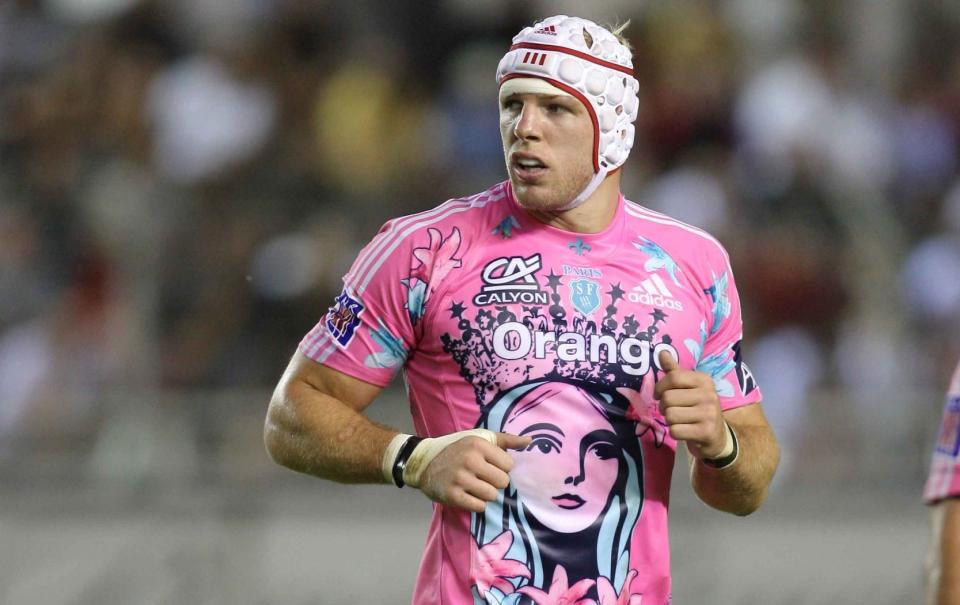The threat of an exodus of players to France and beyond is not new to the Premier League.
In 2009, following confirmation that Wasps trio James Haskell, Tom Palmer and Riki Flutey would be moving to clubs in France the following season, the Rugby Football Union sent a four-page letter to each member of its elite playing squad, clarifying that any players moving abroad could jeopardize their place if they did not secure satisfactory release periods in the contracts with their new clubs.
Now there’s something almost curious about the veiled threat. The players were in no doubt that if they moved abroad and competed for a place with an English player of equal skill, they would not be selected. It also indicated that then England manager Martin Johnson and his coaching staff would not travel to watch players in the French league.


Two years later, the RFU and Premier Rugby had struck a deal that prevented players from abroad being picked by the England head coach except in exceptional circumstances.
The tightening of attitudes over more than a decade proved effective, with the appeal of playing for England being significant enough to convince the overwhelming majority of players that it was in their best interests, both financially and from a rugby perspective, to play within to remain in the English system. .
But now the combination of the Covid pandemic’s devastating impact on Premier League clubs’ finances, including a reduction in the salary cap, coupled with the rising commercial success of the French Top 14 competition and lucrative options in the professional league in Japan, has created an alarming situation. pressure on the effectiveness of foreign policy.
There was a time when players from other national sides looked on enviously at the financial rewards available to England players, including match fees of more than £23,000 per game on top of their club contracts.
But over the past year, Steve Borthwick has seen a stream of players decide for various reasons that accepting a deal in France is now too good an opportunity to turn down, even if it ends their hopes of pulling the red bull’s eye .
This week we learned that Northampton Saints captain Lewis Ludlam is the latest to join the exodus. He will join Toulon next season despite being a respected and influential member of Borthwick’s World Cup squad.
Ludlam’s ex-Saints teammate David Ribbans is already at Toulon, while former Harlequins center Joe Marchant has joined Stade Français, Jack Willis has joined Toulouse, Jack Nowell has joined La Rochelle, Sam Simmonds has joined Montpellier while his brother Joe has joined Pau and Henry Arundell moved to Racing 92 after the World Cup.


With his move necessitated by the financial collapse of London Irish, Arundell will be able to play for England this season, while Gloucester hooker Jack Singleton gave up that right this week by signing for Toulon on loan for the remainder of the season.
The introduction of ‘hybrid or central contacts’ as part of the new long-term deal was initially intended as a way to give Borthwick more hands-on control over the conditioning and skill development of players in his squad.
But significantly, it has now seemingly evolved into the latest incarnation of the 2009 letter, a financial incentive to keep England’s best players in the country.
It is understood the RFU have already been speeding things up behind the scenes in relation to players who were identified as being at high risk of moving abroad and who were firmly in Borthwick’s plan prior to finalizing the details of the new professional gaming partnership launching next year. summer.
Lawes: ‘The RFU must intervene’
Courtney Lawes, who retired from England at the end of the World Cup season, explained why retaining the best talent in the Premier League required urgent action.
“I think the RFU needs to step in and the central contract is probably a good idea,” said Lawes.
“You have to pay the best players what they are worth to stay here, otherwise places like Japan or France or wherever it is, they have the money… The value of the players is what someone is willing to pay for them, so if [clubs in] France pays you X amount and no one in this country does, then it is what it is.
“For players it’s such a finite career, you play for such a short time and it can all end at any time, so you have to make as much money as you can while you’re playing the game. You can’t just stick around because of loyalty or something like that. You have to make your money while being profitable.”
For Lawes, a move closer to the Irish system, where leading players are centrally contracted and playing time is closely coordinated between club and country, would be a welcome step forward and help stem the exodus threat.
“I think no matter how loyal you are to your clubs, having to play almost every game for the club and then going away – when everyone has free time – to go and play for your country is not great for you.” he added.
“I think this almost puts you at a disadvantage compared to the other countries who only play the matches that are necessary for their clubs. They get the playing times that their respective international teams want. And the rest of the time they are well looked after and are almost always fit, so that they are very good come competition time.
“Look, players want to be here and play for England. But you do ask them that, you ask them to be paid such a significant amount less than they are worth to play for England. It is not wise to stay and do that instead of going and earning what you are worth in the short time you are worth it.”
And yet the RFU intervention does not address the wider issues facing the Premier League’s directors of rugby, who are currently spinning more and more plates in their bid to retain English talent on the fringes of the international squad.
The limitations of the current salary cap, uncertainty over the direction of travel and the lack of detail on exactly how the new RFU contracts will work have made deciding which players are worth having even more difficult – with the result that the more players like Ludlam will likely leave.
‘It’s the most complex part of the job’
“It’s a real headache,” says Northampton director of rugby Phil Dowson, “because it’s a moving target all the time. The salary cap goes up and down. We’re not quite sure what that will be in two, three, four years. So you don’t have a long-term vision of what that looks like. You have no idea what the English landscape looks like. All that uncertainty makes it really difficult. I found this to be the most complex part of the job.
“What we cannot have is a situation where clubs go bankrupt in an arms race. London Irish had a very, very good team. It is very sad that that club is no longer there. If you increase the salary ceiling to compete with the French and put pressure on these clubs, it will be very difficult. We must try to prevent that at all costs.”
Rugby club directors will attend a meeting with the RFU next month to find out more about the status of the new deal, which comes into effect at the start of next season. It can’t come soon enough. In 2009 it all seemed so much simpler.